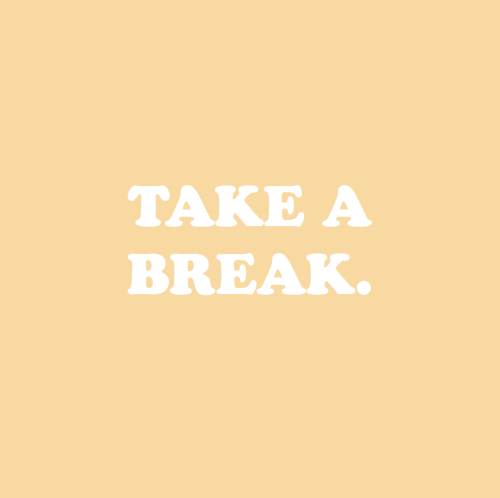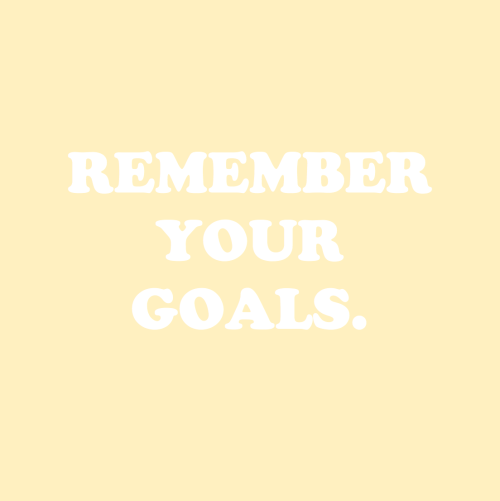The 100 Days Of Productivity Challenge With EmmaStudies!

The 100 Days of Productivity Challenge with EmmaStudies!
Productivity challenges are a fun way to help boost your motivation to get things done! ‘100 days of productivity’ is one of the most popular challenges when it comes to Tumblr and Instagram. As I am planning to start the challenge, I thought it would be a great opportunity to get more people involved! So, where do we start?
What is ‘100 days of productivity’? To put it simply, the challenge is to do something productive for 100 days. It comes from the idea that each day, we can do at least 1 thing that pushes us forward. The challenge is meant to improve your sense of accomplishment and show that with a bit of motivation, you can get things done!
What classifies as productive? This is entirely up to you and what you feel is worth recognition. Whilst the majority of study blogs do something study related each day that isn’t a set rule. Some examples could be:
studying for an accumulative time of 2 hours a day
decluttering your desk and study space
finishing all your homework
drafting an assessment you’ve been procrastinating on
organising your files
sorting through your emails and implementing a filter system
backing up computer files and phone
organising your monthly plan
going to study or read at the library
finishing a book you’ve been meaning to read
setting up a file organisation structure on your computer
creating a resume and cover letter
applying for jobs, internships, work experience
spring cleaning your bedroom and study space
organising your bookshelf
unsubscribing from spam emails
collecting account emails and passwords
sorting out your expenses and budgets
deactivating unused social media/email/etc accounts
Obviously, this list has just a few options. You can do anything which you find achieves a positive and organised result! Even if you do something small, you can count that :-)
Does it have to be consecutive days? It can be, but there isn’t a rule. Most people attempt to do consecutive days but that isn’t always possible. Doing something productive one day after another is great for building your self-discipline, however, you can skip days if need be. If you do, don’t feel bad! Remember to bounce back and continue the next day.
Who can join? Do I need to have a studyblr/studygram? It is open to anyone! There are no requirements for joining. You don’t need to have a studyblr or studygram! If you’re looking for a fun way to motivate yourself with the backing of other people, this is a great challenge to be a part of.
When do I start? Absolutely whenever you want. Could be the start of a month, the start of your school term or for the new year. For this which I’m setting up as a collective challenge, I am planning to start on Monday 9th October. For anyone who has seen this post before then, you are more than welcome to start the same day! But if you see this afterwards, you can still join and be a part of it - but you’ll just be a few days behind, but that is not a problem! :-)
How do I track document my productivity? Most people document their journey through Tumblr or Instagram by posting a photo each day (or every few days). I will be doing this! I will be tagging my posts with #emma100dop which you should too. This way I can see your photos and reblog them too!! As a challenge which I am hoping lots of people can get involved in, having a specific hashtag is great for motivation.
Similarly, it is worth tracking your days on paper. I have created a printable set which you can download for documenting each day’s work. *Download link here!*
Do I have to share pictures? If you don’t want to, you don’t have to share. For studyblr and studygram accounts this is a good idea because you’re uploading original content but if you don’t have a study account, you don’t need to upload any. You can still document your progress with photos and make a gallery on your phone if you want. As mentioned above, I have a printable which you can download for free to track your progress. If you don’t want to take pictures, you can just cross off or write down what you did that day!
I am really excited to start this challenge with you guys! :-) I think doing it as a collective group is a fantastic idea in terms of boosting and maintaining motivation through the whole challenge. With lots of accountability partners, we should all hopefully manage 100 days! Best of luck! Remember to tag me in your pictures on Tumblr and Instagram!! x
Other posts | Printables | Instagram | Youtube | Pinterest | Etsy Shop
More Posts from Plantsandstudy and Others

Okay, so you’ve been called smart all your life. As a kid, you were one of the smartest in your class. Maybe you could read at a much higher level than your peers, or you could fly through multiplication drills like they were nothing. Then, you get to high school and suddenly you’re surrounded by lots of people who were ‘gifted kids’. None of what made you ‘special’ seems all that important now. Your work is actually challenging, and it’s actually requiring effort.
If you’re experiencing this, just know that so many students have gone through the same thing. Maybe it happens in high school, maybe college. But a lot of us who were considered gifted as kids suddenly run into this and it challenges our entire identity. It can be paralyzing, but it’s 100% possible to overcome it and succeed! I’ve compiled a few tips for ex-gifted kids dealing with impostor syndrome and self-doubt. I’m not a therapist, psychologist, or any sort of education expert. I’m just speaking to my own experiences, and I welcome any input from others who have insight into this as well!
1. Understand that working hard does not mean you aren’t intelligent. If something doesn’t come naturally to you, that’s not a reason to give up. Believing that people can do things “just because they were born with a talent for it” is only going to hurt you. It’s not true! People may have natural aptitudes for things, but hard work is involved even for the smartest or most talented people. You are capable of learning anything, and you don’t have to be “good at it” right away to do so.
2. Comparison will kill you. You are your only competition. Focusing on how you rank with other students, and comparing yourself to your classmates is going to exhaust you. By focusing on others, you can’t put your full energy into focusing on your work and yourself. You belong. Even if you struggle with your work, you belong. Focus on your own self-improvement and doing your best.
3. Don’t focus on the goal, focus on your current actions. If you’re always thinking about the future, and about whether you’ll get into that school or that program or win that award or get that scholarship, you’re not using that time to get work done. Don’t worry about college applications, just do your homework. Focus on what you are doing now to reach your goals so you can apply to schools with confidence later.
4. Your grades may not reflect intelligence, but they do reflect work ethic. Don’t let others convince you that grades mean nothing. They sure as hell mean a lot to colleges, and thinking that you should “reject the current education system” is not going to harm anyone but yourself. If you don’t feel like you’re learning anything in your high school classes, that’s all the more reason to want to get into a university that will challenge you. If you put effort into your work, it will not let you down. Your hard work will be reflected on your transcript. Don’t lose focus.
5. Talk to someone. Let people know if you’re struggling. It can be hard to feel like you aren’t allowed to identify as “smart” or to feel pressure to constantly compete and improve. I went to a highly competitive high school that pushed kids to cope in dangerous ways. This is not healthy and not okay. If you’re feeling overwhelmed you need to find healthy coping mechanisms. Speak with someone you trust and don’t let yourself spiral. Don’t try to self medicate. Your well being is always more important than your grades. Period.
6. Enjoy yourself. School may seem like hell, and you may feel like it will never end and you’ll always be stressed and worried. But high school is only four years, and you can do things during that time that you probably won’t ever again. Take advantage of things that seem fun, even if people think they’re nerdy or weird. Try and remind yourself that you’re lucky to have your education and you have the power to do great things with it. Don’t lose sight of your own ability and your bright future!
sunday night feelings of despair management checklist
set a timer for five minutes and tidy up. (you’ll go past the timer.)
pack your school/work/lunch bag
pick out which clothes you are wearing tomorrow
prepare any food/drink you can (putting water in coffee maker, etc)
make a to-do list for tomorrow
check if anything on that to-do list can be done now
do one final email check
do one final planner update
relax
you’re gonna have a great week! you got this!

STUDYBLR MASTERPOST
STUDY TIPS
Study things in 15 mins by @kantstudies
Study tips from professors by @daisystudies
Studying for History by @universtudy
Revision methods that work by @tangledstudies
Last minute revision tips by @muststudy
Untraditional study tips by @obliviatestudies
STUDY MOTIVATION
Motivation vs Discipline by @tangledstudies
Motivation and discipline by @niqabisinparis
10 things to tell yourself by @sweetpeas-and-appletrees
BULLET JOURNAL
a whole bunch of prompts by @studbylr
everything you need by @bujowsofie
my inspo tag
MENTAL HEALTH / SELF CARE / BURNOUT
what to do if you fail a class by @jwstudying
dealing with stress in academia by @joyce-grad
dealing with burnout by @eintsein
self care during the school year by @studycation
Studying with mental illness by @tangledstudies
how i destress by @shayshestudies
emotion skills to learn by @surviveschool
UNIVERSITY AND JOBS ETC
cooking as a broke student by @couple-a-hundred-of-em
personal statement do’s and don’ts by @motivastudy
how to answer common interview questions by @adulttalk
things i wish i knew as a freshman by @jwstudying
NOTES INSPO
flashcards w/ cute headings and highlighted info by @planwithmae
pretty notes with lots of colour by @intelliqents
big colourful cards w/ lots of info! by @unistudydiary
study sheet inspo by @studyforwhatmatters
pretty arty mindmap by @the-etranger
mindmap inspo! lot sof inspo and colour-coded by @studysthetics
simple inspo by @studymlk

Writing an essay without any structure is like trying to find your way around an unfamiliar place without a map; frustrating, ineffective, and a bit of a garbled mess. Structure gives your essay a clear voice and coherency and makes marking a lot easier for your teacher or tutor! Here are a few general tips I often use when writing essays to maximise the effect of my argument and achieve the best results I can both in high school and university.
Text structure While the content of essays varies, the skeleton structure never changes. In order to clearly articulate an idea, an essay needs a beginning, middle, and an end.
Introduction
Start with a macro sentence - use an interesting quote, fact, or idea which gives the reader a broad sense of what your essay will cover. This is the reader’s first impression of your essay and can determine their whole attitude while reading it, so make it effective!
Briefly outline the main ideas and thesis - in absence of an abstract, your introduction will need to show the main ideas you will be covering so as to support your thesis, or answer the essay question. You will need to clearly express your position and how you intend to argue the point.
Set the limits - sometimes, the scope of an essay question can be very broad, or perhaps there’s a focus to your thesis not all ready indicated. Define the limits of your essay, whether they be a set of years for a history topic, or looking at specific artists who contributed to an art style.
Define key terms - if a term is important to the understanding of your essay, or perhaps you’ve taken your own approach to its meaning, be sure to define it in your introduction!
Body
Separate each idea into a paragraph - ideas can generally be separated chronologically or conceptually. The section below explores this in more detail!
Start every paragraph with a topic sentence - introduce what the paragraph will discuss and how it relates to your thesis. Signpost it with critical words to make it easier to understand exactly what you are addressing. Ensure it is clear and to the point!
Make a claim and the support it - like in reality, when you make a claim you need to provide evidence to support it so it can be taken seriously. Make your claim early on in the paragraph, generally in the topic sentence, give relevant detail and explanation, analyse it, and then justify it with authoritative quotes, sources, examples, etc.
End every paragraph with a linking sentence - refer back to your thesis or question and make sure what you set out to cover in the paragraph actually addresses it! This is an opportunity to draw a link between this paragraph and the next.
Conclusion
Do more than just restate your points - your conclusion is more than just a rehash of your introduction. Link ideas together and demonstrate how they are interconnected on a less superficial level. An English teacher once told me, your essay is like a mountain. You put in all your hard work to climb it in your introduction and body paragraphs, your conclusion is a chance to look back, make connections where there were none before, and solidify your argument.
Establish the overarching theme and idea - what idea underlies all the points you have made? How does it relate to your thesis?
Draw a profound and insightful conclusion - what are the implications of this? Is there relevance today? This can transform a standard essay into a more profound and overall, more interesting essay.
Don’t introduce any new information - your essay is complete! All your information should have been expressed in the body paragraphs, so nothing new should be introduced here.
Reaffirm your thesis - restate it with some finality! Your body has provided all this evidence to support it, remind them of this.
Chronological or Conceptual? For the most part, an essay can take one of two approaches; a chronological approach, where each body paragraph follows the text, history, etc., sequentially, or a conceptual approach, where the main idea is broken down into its constituent elements, each addressed in their own paragraph(s).
In my experience, conceptual essays usually score higher, showing a greater sense of understanding of the topic and its inner workings. You can demonstrate a funnel effect more easily, where each element funnels down from its body paragraph to the conclusion, contributing to the overall idea of the essay. A chronological approach, however, can be easier to follow and is occasionally implicit within the essay question. Choosing which approach to use depends on which you are comfortable writing with, the demands of the essay or your teacher, and can vary from essay to essay.
Continuity and Cohesion Something I think is highly underrated, yet critical to holding an essay together, is transition words and phrases. They create continuity and cohesion between ideas and paragraphs, and serve as a bridge of sorts within your overall structure. Here are a few posts which have comprehensive lists of transition words and phrases:
Transition Words for Essays - @staedtlers-and-stabilos Essay Transition Phrases - @study-like-you-mean-it Transition Words For Your Essays - @soniastudyblr
I hope this can help with structuring your essays and getting the best marks you can! Please message me if you have any questions :)
Other essay writing posts: How to reduce your word count Understanding the Question How to Write a Killer Unprepared Text Essay
George: [to Percy] Pardon my French, but you're being a douchebaguette.

Tumblr Resources to Get You Through the School Year!
Hi guys!! Thank you all so much for your support!!! Happy 250 (EDIT: I SPENT A DAY ON THIS AND NOW IM PAST 300) and hope you all have a great start to the month! The community is more welcoming with all of you - I haven’t faced negativity from anyone at all. None of these are my posts - but they’ve helped me out a lot. With that said - let’s get started:
For bujos/planners:
This is one of my side blogs, and has tons of inspiration for weekly and monthly spreads, as well as a few aesthetic ideas and how to start one. I update this constantly.
How to start a studyblr - Studyblrs with creative fields
Lighting (for photos)
Study spreads
Planning your month
Printables (the same as some used down there but in a different category):
Weekly printable
To - do printable
Cornell Notes printable
Back to school printables
Daily Planner @theorganisedstudent
Weekly Planner II @theorganisedstudent
Essay Planner @theorganisedstudent
Assignment Planner @theorganisedstudent
Assignment Tracker
Novel Notes
Plot Diagrams
Correction Sheets
Grid & lined paper
Weekly schedule for studying
Printables masterpost
Exam printable & how to use it
2018 Calender set (by my QUEEN @emmastudies)
For students:
Exams & Studying:
Exam revision guide
How to beat different types of procrastination
How to deal with a crappy teacher (this has to do with studying ig)
Study tips!! (its a masterpost)
Exam Printable & How to Use it
Exam & Homework tips
Coping with hell i mean exams i mean hell
A cool studying outline to try
This is my favorite thing and it’s when to use certain remembering techniques
Correction Sheets
Memorization tips for different learners
Weekly study schedule
More sites to use in normal studying routines
How to study smarter and not harder
Study smarter II
Exam printable & how to use it
Self discipline
Study methods
Hoe tips for school and studying
Studying masterpoint
Tips and tricks to studying
Study tip - so easy
How to stay organized to study
Note - Taking:
Lecture notes
How i set up flash cards (these are nice to study from but be determined to finish setting them up)
Nifty highlighting idea (this post is so old)
Highlighting idea that i actually use
How to take Cornell Notes
Cornell style notes printable (gridded)
Notebook paper (grid & lined)
Tips for pretty notes!!
How to take notes
Notes for different classes
Life, man & general school stuff:
Back - to -school guide
Things I learned as a college freshman
Get ORGANIZED
Textbooks are expensive so here’s some free ones…
Tips for working students that sound extra but may work for u ily don’t overwork urselves
Masterpost for motivation and stuff
Get ur life together again bc haha i stay organized for like a day anyway
School supplies that u should have just to stay minimal
Grad school tips
Organization masterpost
Productive afterschool routine
30 websites to kill boredom
Back to school masterpost
Get confident in presentations
Overcome procrastination
Succeeding in school masterpost
For bad days
For bad days II
A GOOD MASTERPOST for getting ur life together
General school tips
Free online courses
GOOD POWERPOINT TIPS
Sites to learns stuff
More learning stuff sites
Dealing with a trashy class
Study resources masterpost
Summer Productivity
Summer life tips
PLEASE READ THIS THIS IS SUCH AN IMPORTANT MASTERPOST
Honest guide to college
University tips
SCHOOL MINDSET
What to do on Sundays
Back to school masterpost
Useful things for going back to school
How to clean your house
Cute self care tips!
More self care tips
Plant care tips!
English:
A handy list of words to fit into ur essays
How to write an article like a journalist
Words to replace over-used words
ESSAY STRUCTURE IDEA this is in bold so u losers don’t miss this bc it’s not just for English u nerds
Get gucci while reading and be an active reader
Get gud reading them academic articles amigo
Words to replace “the author or whatever shows…” bc that is baby writing and i accidentally used that on an essay and i failed so
Novel notes
Plot Diagrams
Reading Lists
Literary techniques (what themes, personifications, metaphors are etc)
Discussing in English
How to top a literature class
Literature class masterpost
Strong/weak verbs
More essay tips!!
MLA format - a how to
ESSAY GRADER.
How to avoid essay cliches
Chemistry (I’m taking chem so i have a few resources aha)
Da terms on exam papers
Chemistry resources masterpost
Cute periodic tables
Study chapters
History/Social Studies
How to write a history paper
AP world history powerpoints masterpost
Math
General tips
Resources
Understanding math masterpost
Test Prep
PSAT I
PSAT II
ACT tips!
100 words for the SATs (start studying early!!)
Thank you so much for the support! I couldn’t have done it without all of you. A simple reblog or like will help others see these tips, and will be very appreciated. I hope these links work - feel free to message me with questions and other links!! A possible part 2 might come out at the end of august, and one for languages!!!
General School Tips
Stay organized.
Organization is hard for some and easy for others. I recommend having a planner of some sort, a folder, and pencil case, and some sort of system to stay organized.
Have a planner.
You can use any type of planner. I Personally use a Bullet Journal style system in a dotted journal. But you can use a pre printed planner, your phone, a printable or some other form of planner, its up to you. Just have one and use it, write due dates, test/quiz dates, birthdays, holidays, and even your daily tasks. I wrote my work i got in class down as soon as i got it and if i finished it i crossed it out. I would write down websites and little notes to not forget things also. A place to put all of those random thoughts you have can reduce stress
Turn things in on time.
This one seems like common sense but I will still address it because I personally know people who never turned things in and still expected the teacher to pass them. You cannot get a grade with out turning things in. If your teachers is fine with you turning it in late than turn it it. Anything is better than a zero in the grade book.
Ask questions.
I get it, you think your smart enough or good enough or even afraid to ask questions. But teachers are paid to do just that. Their job is to teach you so if you are having trouble with something ask. Also don’t be afraid to ask a question during class. Raise your hand and ask, someone else may have a similar question, it will make the teachers life easier.
Take breaks.
If you find yourself feeling stressed or overwhelmed, take a break. If you’re at home stand up and walk around, get a drink or something to snack on. Get some air. If you are in class ask to go to the bathroom or to get some water. If you cant leave the room then stretch your arms in front or above you and take some breaths. I found that if I couldn’t focus or was stressed that mindless doodling on a blank page for a bit helped.
Find a study style.
There are many ways to study. Reading over notes/books, rewriting notes, condensing info onto flash cards, quizlet, or using memory tricks. Just find one that suits your life and try different ones out. Personally I like rewriting my notes when I have the time or I will condense my notes onto a flash card using an erasable pen. The ink erased with heat so I would have a candle on my desk and waved the card over it to erase. I would do this while writing the info over and over again until I memorized it.
Write your info on your stuff.
If you are prone to leaving things around like I am, write your name, the class, the teacher, the period and the room of the class. If you have a water bottle or something not for a class just put your name and maybe a way to contact you.
Carry a water bottle.
I would highly recommend you have a bottle, just make sure it follows your schools policies.
Have just in case stuff.
When I say just in case I mean things like pain relief, allergy medicine, deodorant, maybe some cough drops, and if you have a period, some spare products. Just have things you may need.
-
 shaggy-ink-cap reblogged this · 1 month ago
shaggy-ink-cap reblogged this · 1 month ago -
 cookiemonroe liked this · 2 months ago
cookiemonroe liked this · 2 months ago -
 ryebreadsupernova liked this · 4 months ago
ryebreadsupernova liked this · 4 months ago -
 shelikesrainydays liked this · 10 months ago
shelikesrainydays liked this · 10 months ago -
 janedelight liked this · 11 months ago
janedelight liked this · 11 months ago -
 ur-mom-d0t-com liked this · 1 year ago
ur-mom-d0t-com liked this · 1 year ago -
 lucylernt liked this · 1 year ago
lucylernt liked this · 1 year ago -
 coneyisland-bench reblogged this · 1 year ago
coneyisland-bench reblogged this · 1 year ago -
 poptipkutusu liked this · 1 year ago
poptipkutusu liked this · 1 year ago -
 nightacademic reblogged this · 1 year ago
nightacademic reblogged this · 1 year ago -
 rrustykknife liked this · 1 year ago
rrustykknife liked this · 1 year ago -
 publichealthscistudies reblogged this · 1 year ago
publichealthscistudies reblogged this · 1 year ago -
 publichealthscistudies liked this · 1 year ago
publichealthscistudies liked this · 1 year ago -
 renegrarova liked this · 1 year ago
renegrarova liked this · 1 year ago -
 sorrythatoneistakenusername reblogged this · 1 year ago
sorrythatoneistakenusername reblogged this · 1 year ago -
 hyacinths-and-revolution reblogged this · 1 year ago
hyacinths-and-revolution reblogged this · 1 year ago -
 sssquidee liked this · 1 year ago
sssquidee liked this · 1 year ago -
 brokenkeyboards reblogged this · 1 year ago
brokenkeyboards reblogged this · 1 year ago -
 okayto liked this · 1 year ago
okayto liked this · 1 year ago -
 idrebnogim liked this · 1 year ago
idrebnogim liked this · 1 year ago -
 fruitshrine liked this · 1 year ago
fruitshrine liked this · 1 year ago -
 thenonsocialbean liked this · 1 year ago
thenonsocialbean liked this · 1 year ago






